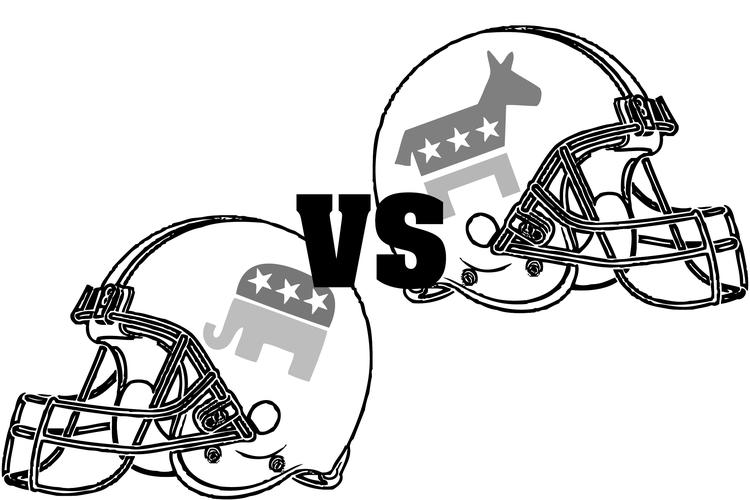The Dallas Cowboys are my team. There’s just no other way around it. It’s my favorite team and has been so ever since I was a little boy watching the games on my father’s lap. I irrationally love and root for the Cowboys, even though I’ve never met any of the players, coaches or members of the organization. Every season, I dream of the Cowboys winning the Super Bowl, no matter how distant those odds are, and defend every player on the team, even though I have no personal connection to them.
That’s just how I feel about the Cowboys and I am sure that there are tens of millions of Americans like me who feel that way about their respective favorite football team. For sports it’s all right to irrationally cheer for your team no matter what. Yet, Americans have seen too much of this blind allegiance and loyalty to political parties, as if voters are cheering for a certain party, much in the same way someone would cheer for his or her beloved football team.
For a segment of voters for both parties, all that matters is the “R” or “D” that is next to a candidate’s name. No matter what sort of rhetoric or position said candidate takes, that segment of voters will justify and defend these candidates solely because they are either Democrat or Republican.
Such blind allegiance may be fine in football, but when it comes to voting for the future leaders of our country, Americans need to look past such petty things. If not, they will continue to go farther down this road of partisan divisions and deadlock they are facing.
Voters must make informed decisions for our democracy to function properly. There is no other way around that fact. Yet, if at every election all Americans do is look for what letter is next to a candidate’s name, then all they will get is deeper partisan divisions and more political stalemates.
Voting for a candidate is a decision that holds great implications, because that candidate could potentially run the country if elected. People seem to be looking more at a candidate’s party affiliation than that candidate’s positions or goals upon being elected. Not only could this lead to severely under-qualified candidates being elected, but it could also lead to an “us versus them” mentality among all the adherents to a party’s ideology.
This political “football” paints a black and white portrait of a country that is extraordinarily diverse. Too many people think that if an individual is of the opposite party he or she is a horrible person who is hell-bent on the destruction of America.
The refusal to compromise with those of the opposite party is a direct result of this “political football” mentality. In sports, an individual wants his or her team to beat the opponent. A fan will never cheer for his or her team to tie or work with the opposing team. Yet for all the similarities politics has with sports; it is far too different for this mentality to succeed. People who have ideas that are different from someone else’s are not hell-bent on the destruction of America, rather they want the same things any other American does: prosperous citizens, freedom for all and America’s continued success as a democracy and world power.
If Americans sat down and rationally shared their opinions and ideas with those who think differently than them, instead of rooting for their “political team” to win no matter the cost, they may finally be able to move forward again.
Jordan Rubio is a freshman broadcast journalism major from San Antonio.





